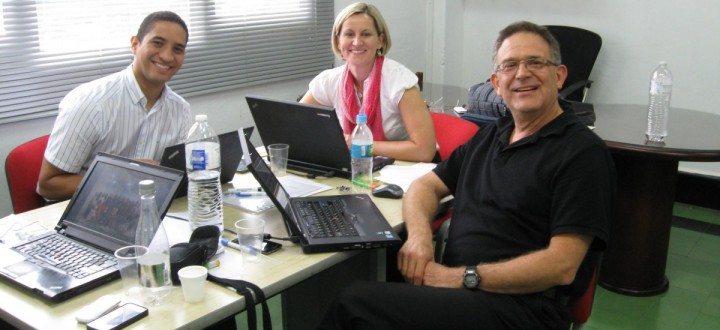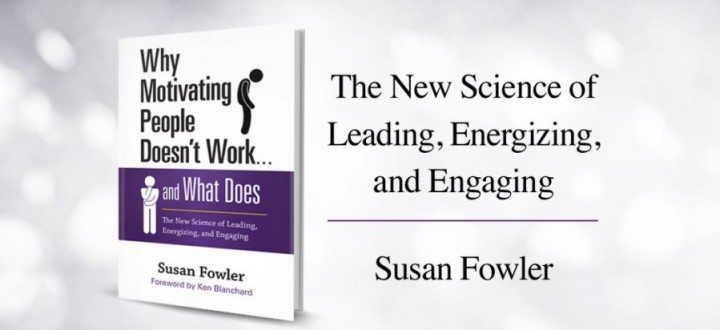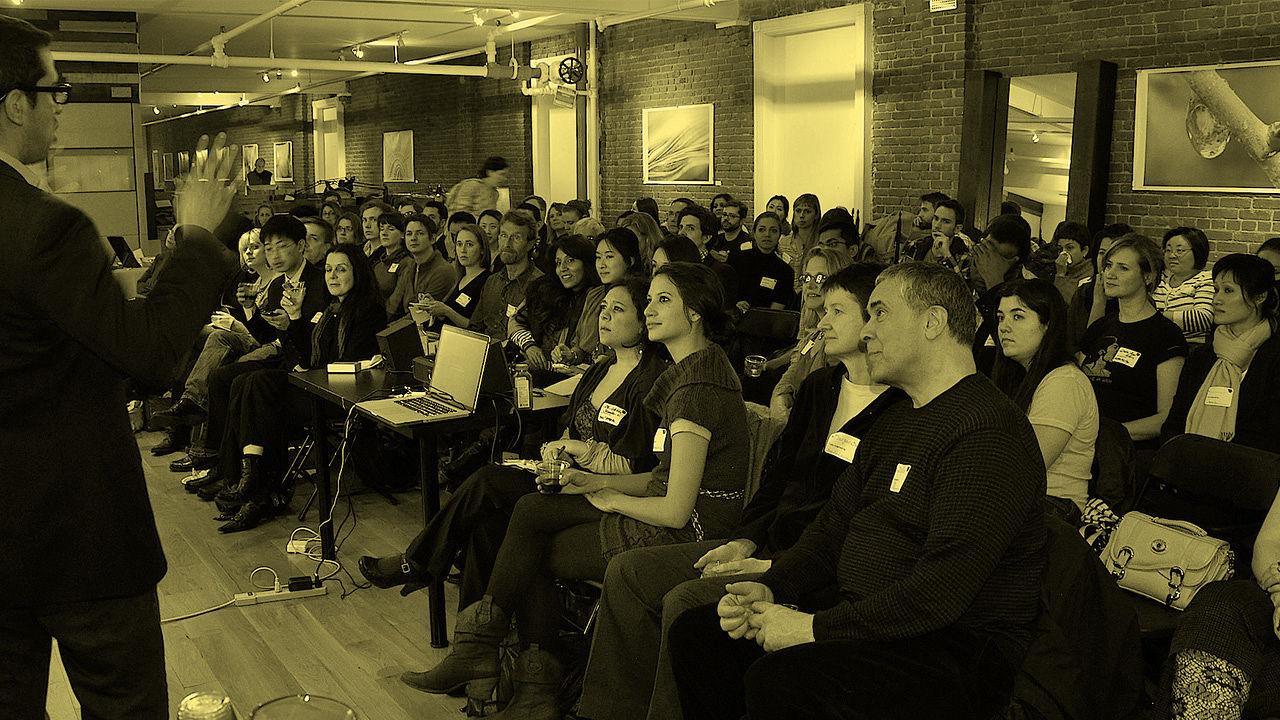WASHINGTON, DC | November 24, 2014 - This week on BIZ+SOCIAL, we bring you the best from the New Global Citizen, Fast Company, SSIR, and more.
GLOBAL PRO BONO
Volunteerism 2.0: Local and Global Citizenship through Employee Engagement
 I am really excited to have the opportunity to talk to you today, because employee engagement is one of my favorite topics and volunteering is one of my passions. But I think it’s important to note that while they can be connected, they aren’t automatically connected. In a way, it’s like a magnet. If you’ve ever held two pieces of a magnet in each of your hands, you know that the closer they get, the stronger the attraction, until you can’t keep them apart. But hold them far enough apart, and there really isn’t a strong connection. I think that’s a good metaphor for employee volunteerism and employee engagement. If they are aligned, there is a strong motivation and a powerful force to propel the organization forward, far greater than the force—or energy—required to put them together. And that’s the kind of engagement you want to drive in corporate volunteering programs. But let’s talk for a minute about what we mean by “employee engagement”. What does that mean exactly? One of the more insightful ways I have found to frame it is to consider a combination of employee commitment and employee understanding. Read More…
I am really excited to have the opportunity to talk to you today, because employee engagement is one of my favorite topics and volunteering is one of my passions. But I think it’s important to note that while they can be connected, they aren’t automatically connected. In a way, it’s like a magnet. If you’ve ever held two pieces of a magnet in each of your hands, you know that the closer they get, the stronger the attraction, until you can’t keep them apart. But hold them far enough apart, and there really isn’t a strong connection. I think that’s a good metaphor for employee volunteerism and employee engagement. If they are aligned, there is a strong motivation and a powerful force to propel the organization forward, far greater than the force—or energy—required to put them together. And that’s the kind of engagement you want to drive in corporate volunteering programs. But let’s talk for a minute about what we mean by “employee engagement”. What does that mean exactly? One of the more insightful ways I have found to frame it is to consider a combination of employee commitment and employee understanding. Read More…
IMPACT & INNOVATION
Part I: Tackling the Future of Food, Water, and Energy at #NI14
 “We have to produce more food in the next 36 years than has been produced in all of mankind’s history,” said Natalie DiNicola, Vice President of Sustainability and Signature Partnerships at Monsanto. This challenge, and its implications for a planet already facing massive constraints on natural resources, was among the most dynamic topics of conversation at this year’s Net Impact Conference. Reprising last year’s hot-button debate format, Dr. Jahi Chappell, Director of Agroecology and Agriculture Policy at the Institute for Agriculture and Trade Policy (IATP), and Dr. Natalie DiNicola of Monsanto took the stage for the conference’s most heated session. IATP and Monsanto represent two opposite but critical sides of the spectrum in the food production conversation. IATP is a nonprofit research and advocacy organization that works at the intersection of policy and practice to ensure fair and sustainable food, farm, and trade systems. Monsanto is a multinational agrochemical and agricultural biotechnology corporation and the world’s leading producer of genetically engineered seed. While some critics might not think so, both organizations are deeply committed to tackling the challenge of feeding an expanding population while preserving the planet’s natural resources.The similarities stop there. Read more…
“We have to produce more food in the next 36 years than has been produced in all of mankind’s history,” said Natalie DiNicola, Vice President of Sustainability and Signature Partnerships at Monsanto. This challenge, and its implications for a planet already facing massive constraints on natural resources, was among the most dynamic topics of conversation at this year’s Net Impact Conference. Reprising last year’s hot-button debate format, Dr. Jahi Chappell, Director of Agroecology and Agriculture Policy at the Institute for Agriculture and Trade Policy (IATP), and Dr. Natalie DiNicola of Monsanto took the stage for the conference’s most heated session. IATP and Monsanto represent two opposite but critical sides of the spectrum in the food production conversation. IATP is a nonprofit research and advocacy organization that works at the intersection of policy and practice to ensure fair and sustainable food, farm, and trade systems. Monsanto is a multinational agrochemical and agricultural biotechnology corporation and the world’s leading producer of genetically engineered seed. While some critics might not think so, both organizations are deeply committed to tackling the challenge of feeding an expanding population while preserving the planet’s natural resources.The similarities stop there. Read more…
LEADERSHIP
BOOK EXCERPT: Why Motivating People Doesn’t Work…And What Does
 Susan Fowler is going to turn on its head everything you thought you knew about motivating people. She can sum it up in one sentence: you can’t. But you can help them to motivate themselves. Once again, the Ken Blanchard Organization has put forward one of its finest, with cutting-edge leadership, and the research to back it up. Why Motivating People Doesn’t Work…And What Does: The New Science of Leading, Energizing, and Engaging clearly outlines a spectrum of motivation—from disinterested to imposed, to aligned, to inherent—all along the twin axes that considers both psychological needs and self-regulation, and provides clear coaching to leaders to facilitate people to move along that path. A key insight offered by Fowler is that “motivation” is not “on” or “off.” “One of the primary reasons motivating people doesn’t work is our naïve assumption that motivation is something a person has or doesn’t have. This leads to the erroneous conclusion that the more motivation a person has, the more likely she will achieve her goals and be successful. When it comes to motivation, assuming that more is better is too simplistic and even unwise. As with friends, it isn’t how many friends you have; it is the quality and types of friendships that matter,” she writes. Read More…
Susan Fowler is going to turn on its head everything you thought you knew about motivating people. She can sum it up in one sentence: you can’t. But you can help them to motivate themselves. Once again, the Ken Blanchard Organization has put forward one of its finest, with cutting-edge leadership, and the research to back it up. Why Motivating People Doesn’t Work…And What Does: The New Science of Leading, Energizing, and Engaging clearly outlines a spectrum of motivation—from disinterested to imposed, to aligned, to inherent—all along the twin axes that considers both psychological needs and self-regulation, and provides clear coaching to leaders to facilitate people to move along that path. A key insight offered by Fowler is that “motivation” is not “on” or “off.” “One of the primary reasons motivating people doesn’t work is our naïve assumption that motivation is something a person has or doesn’t have. This leads to the erroneous conclusion that the more motivation a person has, the more likely she will achieve her goals and be successful. When it comes to motivation, assuming that more is better is too simplistic and even unwise. As with friends, it isn’t how many friends you have; it is the quality and types of friendships that matter,” she writes. Read More…
ENTERPRISE DEVELOPMENT
Two Influential Organizations Set Their Sites on Helping Women Entrepreneurs
 It’s no secret that companies with women on boards and in leadership have been shown to perform better than those that don’t. But the numbers of women in top spots is still discouragingly low. The PwC Charitable Foundation, Inc. and Points of Light are making an announcement today at the first Women’s Entrepreneurship Day held at the United Nations about how they intend to contribute to changing that. PwC has supported Points of Light’s Civic Accelerator, which invests in early-stage social ventures. PwC Principal and Corporate Responsibility Leader Shannon Schuyler will announce today that the Civic Accelerator’s next initiative will focus on expanding its commitment to women entrepreneurs, helping women and girls gain equal access to opportunities and support, with half or more of the beneficiaries led by women founders. The program is designed to give women advice and access to funding, as well as business relationships that can help them succeed, she says. Through previous initiatives, Schuyler says that PwC found women often have difficulty gaining access to funding, especially in a male-dominated venture capital world. The new initiative will address that problem head-on with the founders involved by pairing women with professionals from their organizations and networks to give them the advice and feedback they need and help coach them through the process. Read more…
It’s no secret that companies with women on boards and in leadership have been shown to perform better than those that don’t. But the numbers of women in top spots is still discouragingly low. The PwC Charitable Foundation, Inc. and Points of Light are making an announcement today at the first Women’s Entrepreneurship Day held at the United Nations about how they intend to contribute to changing that. PwC has supported Points of Light’s Civic Accelerator, which invests in early-stage social ventures. PwC Principal and Corporate Responsibility Leader Shannon Schuyler will announce today that the Civic Accelerator’s next initiative will focus on expanding its commitment to women entrepreneurs, helping women and girls gain equal access to opportunities and support, with half or more of the beneficiaries led by women founders. The program is designed to give women advice and access to funding, as well as business relationships that can help them succeed, she says. Through previous initiatives, Schuyler says that PwC found women often have difficulty gaining access to funding, especially in a male-dominated venture capital world. The new initiative will address that problem head-on with the founders involved by pairing women with professionals from their organizations and networks to give them the advice and feedback they need and help coach them through the process. Read more…
CITIZEN DIPLOMACY
TED Talk: Kakenya Ntaiya, a Girl Who Demanded School
Having had grown up in the Maasai culture, Kakenya Ntaiya had her path chosen for her. At the age of 5 years old, Kakenya was engaged to be married as soon as she reached puberty. She grew up doing everything possible to help her become the perfect wife, including milking the cows, sweeping the house, cooking for her siblings, and collecting water and firewood. However, Kakenya saw the importance of gaining an education at a young age. “I went to school not because the Maasais’ women or girls were going to school. It’s because my mother was denied an education, and she constantly reminded me and my siblings that she never wanted us to live the life she was living,” stated Kakenya Ntaiya during her Ted Talk in March of 2013. “When I went to school, I had a dream. I wanted to become a teacher.” “I worked hard in school, but when I was in eighth grade, it was a determining factor. In our tradition, there is a ceremony that girls have to undergo to become women, and it’s a rite of passage to womanhood. And then I was just finishing my eighth grade, and that was a transition for me to go to high school. This was the crossroad. Once I go through this tradition, I was going to become a wife. Watch Here…
MORE
Colombia’s Government Aids Demobilized Combatant Reintegration
Letter from the Editor: You’re More Like a Tree Than You Think
Four Social-Change Results That Innovation Labs Deliver
Why Global Health Needs the Private Sector
New Global Citizen
The New Global Citizen chronicles the stories, strategies, and impact of innovative leadership and international engagement around the world. This is the world of the new global citizen. This is your world.





